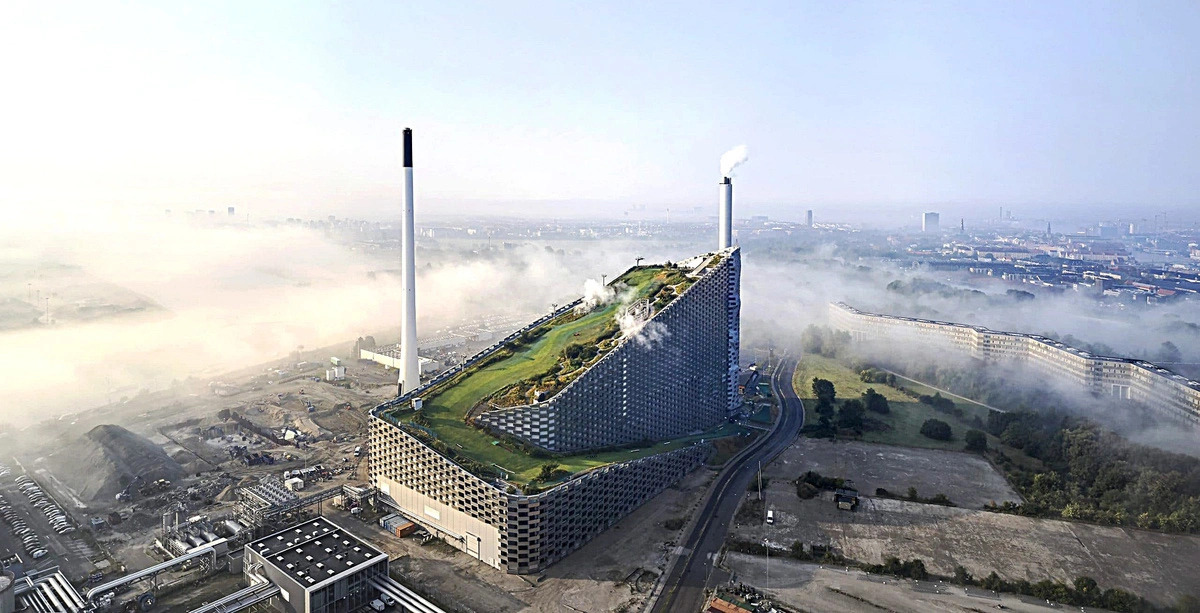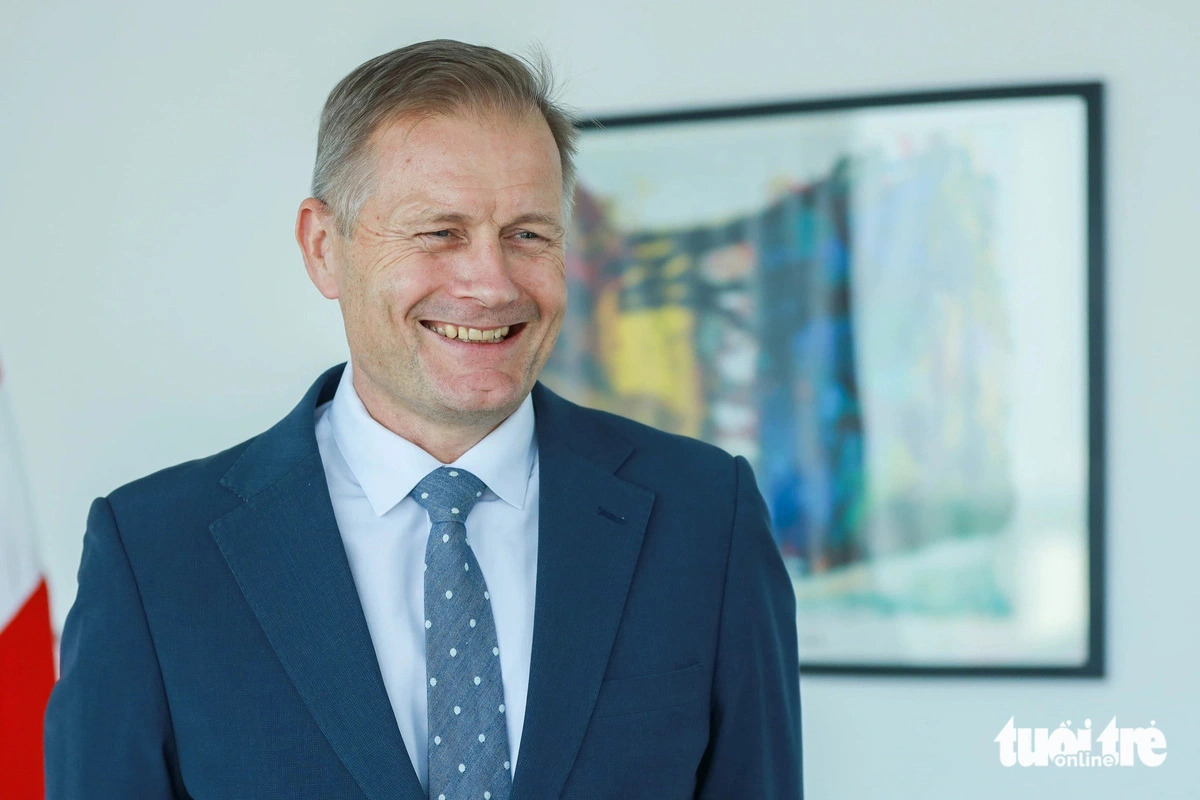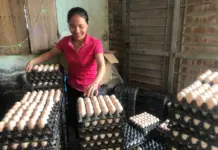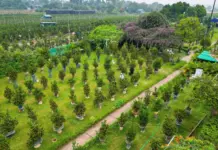Denmark’s Journey to Sustainability: A Model for the World
Denmark embarked on its sustainable path in the 1970s during the global oil crisis, proving that economic growth need not come at the cost of increased energy consumption or emissions.
Since 1990, the country has achieved impressive milestones. According to Danish Ambassador Nicolai Prytz, Denmark’s gross domestic product (GDP) has increased by 75 percent, while energy use has dropped by 11 percent, CO2 emissions have fallen by 41 percent, and green careers have seen a significant spike of 31 percent.
Wind power has been a key driver of Denmark’s success, with over 50 percent of its electricity generated from this renewable source. Vindeby, the world’s first offshore wind farm, constructed off the Danish coast in 1991, stands as a testament to this commitment.
Additionally, Denmark has excelled in waste-to-energy initiatives, significantly reducing landfill usage and improving waste management. In 1992, the country implemented a comprehensive waste plan promoting recycling, biogas production, and waste incineration for energy. This plan included landfill taxes, encouraging biogas use for electricity, and utilizing waste incineration to heat homes.
As a result, landfill waste has decreased drastically from 44 percent in 1988 to just 2 percent today, and the country is on track to achieve climate neutrality in waste management by 2030. Ambassador Prytz also highlighted Denmark’s urban recycling goals, aiming for a 55 percent recycling rate by 2025 and an impressive 65 percent by 2035.
The country’s deposit refund system for plastic and glass bottles at supermarkets has contributed to record-high bottle collection rates across Europe, showcasing consumer engagement in sustainable practices.
Denmark is also a leader in carbon-neutral agriculture, with a target to achieve this by 2050. Between 1990 and 2016, they reduced CO2 emissions by 16 percent while increasing food production by over 30 percent, demonstrating the feasibility of sustainable food systems.
|
|
| The Amager Bakke waste-to-energy plant in Denmark showcases the country’s commitment to sustainable practices. Photo: State of Green |
Global dairy cooperative Arla has implemented a unique approach, financially rewarding farmers based on their carbon footprint, or rather, the lack thereof. The higher the eco-friendliness of their practices, the greater their earnings.
Ambassador Prytz emphasized that public-private partnerships between government and research organizations are vital to accelerating the green transition. Additionally, Denmark has introduced a carbon tax on livestock, fertilizers, and agricultural land, while actively promoting green products, especially organic and plant-based foods.
The strong collaboration between the Danish Energy Agency and Vietnam’s Ministry of Industry and Trade, through the Vietnam-Denmark Energy Partnership, further underscores Denmark’s commitment to sharing its expertise. Offshore wind energy is a critical component of this partnership and will play a significant role in Vietnam’s future energy mix.
With the cost of offshore wind power becoming increasingly competitive in recent years, it is now one of the most affordable energy options. Vietnam, with its extensive coastline and favorable conditions, is well-positioned to transition from fossil fuels to renewable energy, effectively utilizing its natural resources.
However, to achieve the ambitious goal of establishing 84 GW of offshore wind capacity by 2050, Vietnam must expedite the development of a transparent and predictable regulatory framework to attract the necessary investments.
|
|
| Nicolai Prytz, Danish Ambassador to Vietnam, shares insights on the country’s sustainable journey. Photo: Danh Khang / Tuoi Tre |
The ‘Vietnam Energy Outlook Report – Pathways To Net-Zero’, a collaborative effort between Vietnam and Denmark, provides valuable recommendations. These include designating offshore areas, preparing port infrastructure, and strengthening the electrical grid to support the integration of renewable energy.
Denmark’s experience demonstrates that offshore wind is not just crucial for the green transition but also for fostering new industries, business opportunities, and green jobs. Ambassador Prytz attributed Denmark’s successful transition, in part, to the growth of green technology companies, particularly in offshore wind energy, with several of these companies now establishing a presence in Vietnam.
At the United Nations Climate Change Conference (COP26) in 2021, Vietnam demonstrated its commitment by pledging to reach net-zero emissions by 2050. This bold promise underscores the importance of investing in renewable energy and energy efficiency.
The Green Heart of JW Marriott Phu Quoc
Nestled amidst the idyllic scenery of Phu Quoc Island, JW Marriott Phu Quoc emanates an aura of elegance and a commitment to sustainable practices.
Unveiling the Unparalleled: Singapore’s Triumphs at the ACES Awards 2024
At the ACES Awards 2024, Singaporean businesses and their visionary leaders stepped into the spotlight. Their groundbreaking work in sustainability, innovation, and transformative leadership was recognized and celebrated. This prestigious event showcased the very best of Singaporean talent, highlighting those who are pushing boundaries and driving change. It was an evening of well-deserved accolades and a testament to the country’s thriving business landscape.
Denmark Backs Vietnam’s Sustainable Development Agenda
Deputy Prime Minister Tran Hong Ha and the Speaker of the Danish Parliament, Soren Gade, convened a pivotal meeting in the vibrant city of Copenhagen. The focus of their discussions was to strengthen cooperation and forge new paths in the realms of renewable energy, marine economy, green growth, and the circular economy. With a shared vision for a sustainable future, they aimed to unlock new opportunities and drive progress in these vital areas.
Eco-Warriors: Vietnamese Beauty Queens Championing a Greener Tomorrow
Last weekend, the vibrant city of Ho Chi Minh played host to an extraordinary gathering — the Green Vietnam Festival. An event dedicated to celebrating and promoting an environmentally conscious lifestyle. With a focus on sustainability and eco-friendly practices, the festival attracted a community passionate about making a positive impact on our planet.











